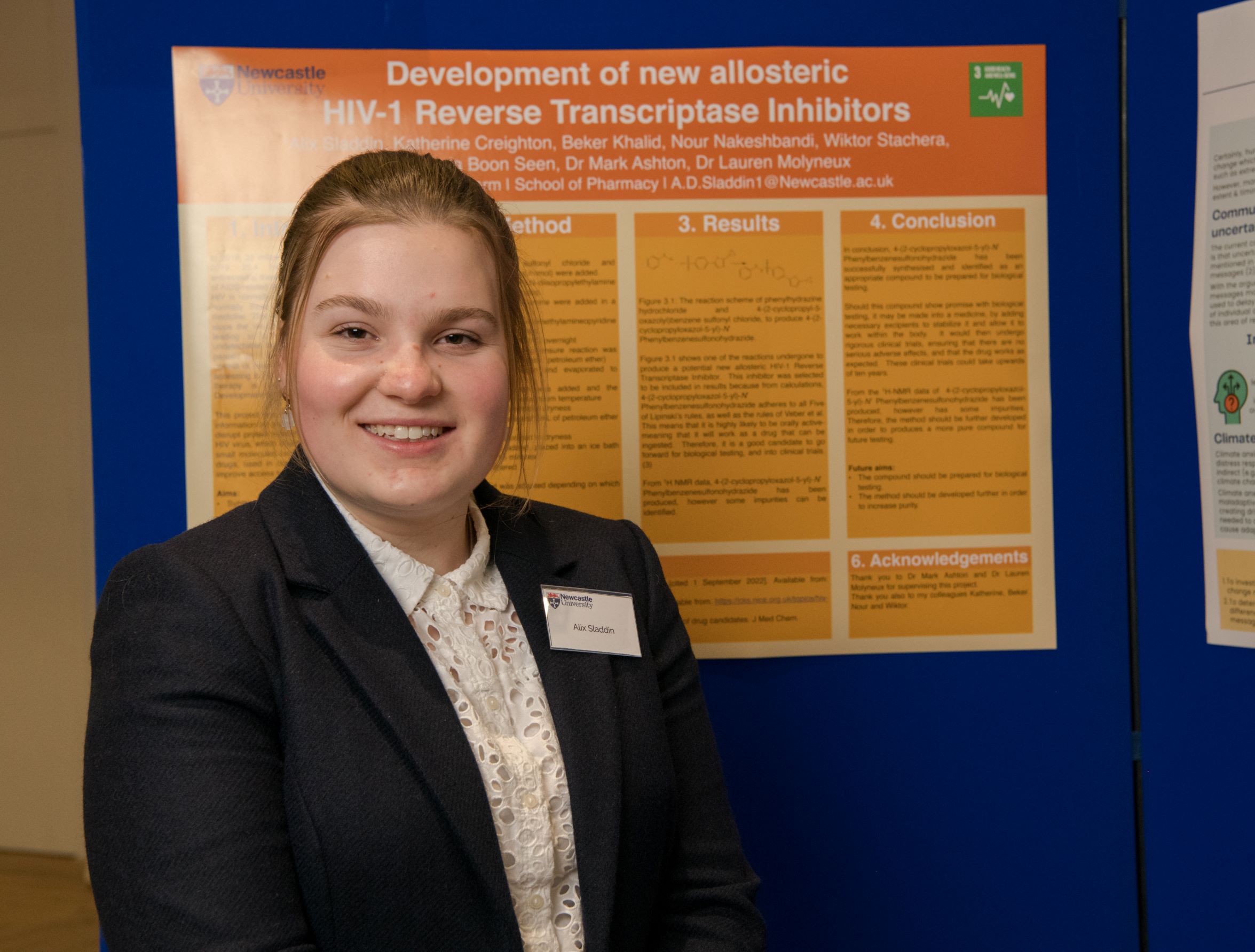2022 Participants
 Alix Sladdin
Alix Sladdin
In 2019, 38 million people were living with HIV; 25.4 million people were accessing antiretroviral therapy; 690,000 people died of AIDS-related illnesses. HIV is normally treated using combination therapy- normally three drugs, combined into one medicine. This treatment does not cure HIV, but it stops the virus from reproducing within the body, leading to an undetectable viral load, meaning that HIV cannot be passed on. Antiretroviral therapy can lead to a normal or near-normal lifespan. Therefore, access to antiretroviral therapy is key to achieving the Sustainable Development Goal Target 3.3 to end AIDS by 2030.
Our project aimed to identify, synthesise, and collect information on new small molecule leads, which could disrupt protein interactions within an enzyme in the HIV virus, thus stopping replication. These small molecules could be developed into new HIV drugs and used in combination with existing drugs to improve access to antiretroviral therapy.
Funding source: Newcastle University
Project supervisor: Dr Mark Ashton
